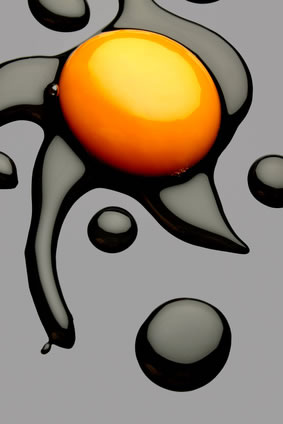Lutein and zeaxanthin are carotenoids found in the human eye. The highest concentration is found in the macular area of the retina. About 80% of the carotenoid content in the retina is Lutein and zeaxanthin. The macula is a specialized region in the back of the eye which allows you to clearly see fine details. In addition to sunlight exposure, age, smoking and diet have been identified as risk factors for age-related macular degeneration. One function of zeaxanthin and lutein revealed by research is their capacity to serve as an antioxidant.
What is Age Related Macular Degeneration?
Age related macular degeneration is the most common cause of vision loss in those aged over 50. The macula is a small spot in the centre of the retina that processes sharp, clear vision. With age-related macular degeneration, the macula cells become damaged, leading to gradual loss of your central vision. Macular degeneration disables this retinal function, leaving only a margin of peripheral vision. There are different kinds of macular problems, but the most common is age-related macular degeneration. The worldwide incidence of the disease grows from 1 in 10 people over the age of 60 to more than 1 in 4 people over the age of 75.
Zeaxanthin and Lutein Benefits
Zeaxanthin and lutein may protect the retina in two ways, as antioxidants to oxidative stress from metabolism, and by filtering short wavelengths of light they also reduce the oxidative effect of blue light .Within the skin, lutein appears to be deposited in the epidermis and dermis, providing its antioxidant and blue-light absorption functions throughout the depth of the skin.
 According to a 1995 study, increasing the consumption of dark green, leafy vegetables appears to offer some protection against macular degeneration. In a study of 380 people aged 66-75 years in the UK, people with lower blood levels of lutein plus zeaxanthin were more likely to have age-related macular degeneration.
According to a 1995 study, increasing the consumption of dark green, leafy vegetables appears to offer some protection against macular degeneration. In a study of 380 people aged 66-75 years in the UK, people with lower blood levels of lutein plus zeaxanthin were more likely to have age-related macular degeneration.
A study reported in the Journal of the American Medical Association provided the of evidence that lutein supplements, taken in capsule form 6-30 mg per day, can lower the risk of macular degeneration up to 43 percent. In a 2009 study of 37 healthy adults, researchers found that subjects who took lutein supplements for 12 weeks experienced improvements in visual function. A study from Beijing-based researchers, reported in the British Journal of Nutrition, has noted improvements in the sensitivity to contrast on a computer screen in subjects taking lutein. The study concluded that “a higher intake of lutein may have beneficial effects on the visual performance. A research study published in Investigative Ophthalmology and Visual Science, suggests that zeaxanthin supplementation preventeddiabetes-induced increase in retinal damage. The Health Professional’s Follow-Up Study also found that high amounts of lutein and zeaxanthin lowered the need for cataract surgery.
Lutein and Zeaxanthin Food Sources
Lutein is found in egg yolk and many plants and vegetables, including red peppers, broccoli, mustard, zucchini, corn, garden peas, spinach, collard greens and kale. Rich sources of zeaxanthin are dark, leafy greens, as well as broccoli, corn, Brussels sprouts, zucchini and peas.
Carotenoids such as lutein, and zeaxanthin are fat-soluble substances, and as such require the presence of dietary fat for proper absorption through the digestive tract. The concentrations of various carotenoids in human serum and tissues are highly variable and depend on food sources, efficiency of absorption, and amount of fat in the diet. The researchers suspect that lutein from eggs is more readily absorbed into the bloodstream than lutein from other sources because of components in the egg’s yolk, such as lecithin.
Lutein and Zeaxanthin Dosage
Lutein supplements are available in soft-gel capsule form. Daily amounts of lutein and zeaxanthin are generally recommended at 20 mg of lutein and 3-10 mg of zeaxanthin. 12mg dose of lutein improved vision in health computer users. Lutein supplements contain trace amounts of natural or dietary zeaxanthin. A recommended amount of zeaxanthin is 10 mg daily for anyone diagnosed with macular degeneration and 3 mg for those taking it as a preventative measure.
Leave a Reply